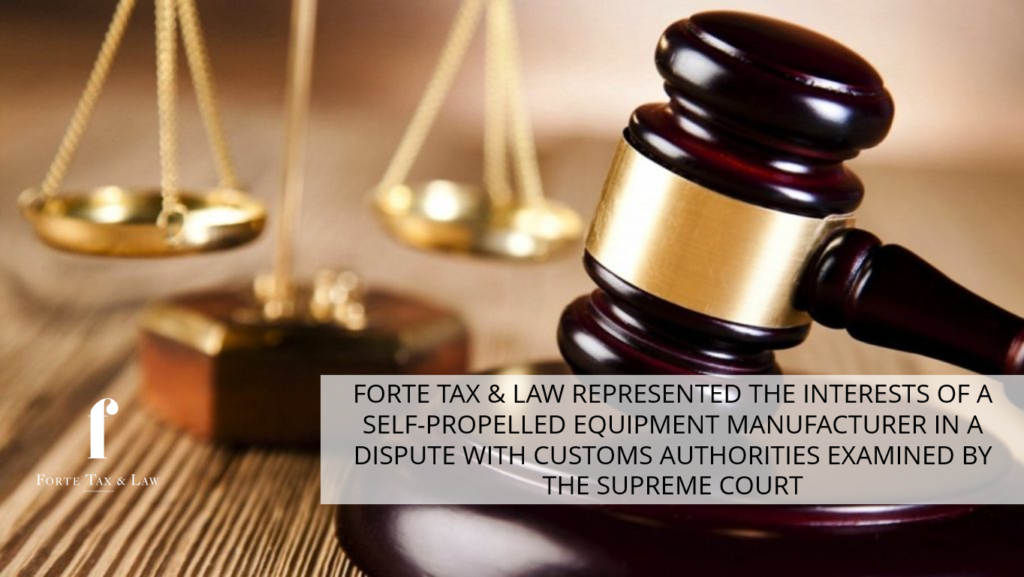Forte Tax & Law » News » Forte Tax & Law represented the interests of a self-propelled equipment manufacturer in a dispute with customs authorities examined by the Supreme Court
Forte Tax & Law represented the interests of a self-propelled equipment manufacturer in a dispute with customs authorities examined by the Supreme Court
On November 18, 2020, the Russian Supreme Court ruled in favor of a large American manufacturer of self-propelled equipment whose interests were represented by Forte Tax & Law in a dispute with customs authorities. The Supreme Court reversed the decision of the first instance court as well as the decisions of the appellate and cassation instances.

Customs authorities claimed – and the lower instance courts sided with them – that customs commodity codes (TN VED codes) alone should be considered to determine whether recycling charge should be imposed (in this case, on self-propelled hoist). Many companies importing self-propelled equipment into Russia faced the same problem in 2018 after the introduction of notes to the list of self-propelled machines/vehicles subject to recycling charge. Based on these notes, customs authorities began applying recycling charge to all self-propelled machines/vehicles regardless of their type and category, considering only their customs commodity code and whether or not it was in the list of self-propelled machines/vehicles subject to recycling charge. This has affected many importers of self-propelled machines/vehicles since 2018 as customs authorities began applying this approach extensively. This resulted in the imposition of recycling charge by customs authorities also on vehicles for which customs authorities did not previously require the payment of recycling charge.
Forte Tax & Law successfully defended the interests of several manufacturers of self-propelled equipment, arguing and proving that customs commodity codes cannot be the main and sole criterion to determine whether a self-propelled machine/vehicle is subject to recycling charge. To do so, it is necessary to also consider the category and type of machine/vehicle. One of the cases won by our lawyers in a series of many became a legal precedent, the first of its kind to reach cassation and remain firmly established.
Our position and arguments in the dispute were not based on a literal interpretation of the law, but on fundamental taxation principles applicable to any legal relationship.
